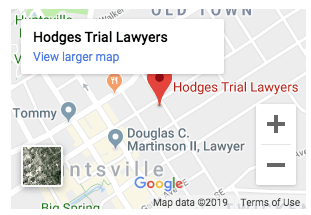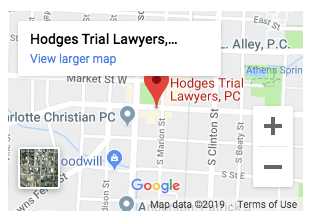The aftermath of a car accident in Alabama can be overwhelming, with insurance adjusters playing a significant role in managing claims. Understanding how to deal with these adjusters is vital to protecting your rights and securing fair compensation under state law. Insurance adjusters primarily work to minimize payouts, which can conflict with your need for full compensation for medical bills, lost wages, and property damage.
Immediate Post-Accident Steps in Alabama
What you do immediately following a car crash in Alabama can significantly impact your health and any subsequent insurance claim. Prioritize these steps:
Ensure Safety: If possible, move vehicles out of traffic to prevent further collisions. Turn on hazard lights. Check yourself and your passengers for injuries. If anyone is hurt, call 911 immediately. Even if injuries seem minor, prioritize safety.
Seek Medical Attention Promptly: Even if you feel okay initially, adrenaline can mask injuries. See a doctor, visit an urgent care clinic, or go to the emergency room as soon as possible. Delaying medical assessment can not only harm your health but also give insurance adjusters ammunition to argue your injuries weren’t caused by the accident. Ensure your medical provider knows your injuries are from a car accident.
Call the Police: Always report the accident to the police, especially if there are injuries or significant property damage. An official police report1 (Accident Report) provides an objective account of the incident, including diagrams, witness information, and often, the officer’s initial assessment of fault. This report is invaluable evidence for your insurance claim in Alabama.
Gather Essential Information: Exchange information with the other driver(s) involved. Politely request and photograph:
- Full Name and Contact Information (address, phone number)
- Driver’s License Number
- Insurance Company Name and Policy Number
- Vehicle Make, Model, Year, Color, and License Plate Number
Document Everything Meticulously: Your smartphone is a powerful tool. Take numerous photos and videos of:
- The accident scene from various angles, including road conditions, traffic signals, and weather.
- Damage to all involved vehicles (close-ups and wider shots).
- Your visible injuries.
- Any relevant landmarks or potential hazards.
Identify Witnesses: If there were witnesses, get their names and contact information. Independent accounts can be crucial if fault is disputed.
Avoid Admitting Fault: Emotions run high after an accident. Be polite, but do not apologize or say anything that could be construed as admitting fault (e.g., “I didn’t see you,” “I’m sorry”). Stick strictly to factual exchanges of information. Even a simple apology can be twisted by an adjuster later.
Taking these immediate steps lays a strong foundation for handling the insurance claim process effectively.
Initial Contact with the Insurance Adjuster: What to Expect
Shortly after the accident, expect a call from an insurance adjuster – likely from the other driver’s company. Here’s how to handle this critical first contact:
Understand Their Role: The adjuster is trained to investigate the claim, assess liability, evaluate damages, and ultimately, resolve the claim for the lowest amount reasonably possible for their employer. They are not your advocate.
Handling the Initial Call:
- Get their full name, title, the insurance company they work for, the claim number, and their direct phone number. Ask clearly whom they insure (you or the other party).
- Be polite but brief. Provide only basic identifying information (your name, address, phone number) and confirm the date/location of the accident.
- State that you are still assessing the situation and potentially seeking medical treatment (if applicable).
- Do not discuss accident details, fault, or the specifics of your injuries.
- Do not agree to provide a recorded statement at this time.
- Inform them you will communicate further when appropriate, or that your attorney will be in contact.
The Recorded Statement Trap: Adjusters will often push hard for a recorded statement, sometimes implying it’s mandatory or just routine procedure. Politely decline. Especially in Alabama, with the contributory negligence rule, anything you say can be meticulously analyzed and potentially used to argue you were partially at fault. You are generally not obligated to give a recorded statement to the other party’s insurer. Consult with an attorney before ever agreeing to one.
Document Everything: After the call, immediately write down the date, time, adjuster’s name, and a summary of the conversation. Keep a dedicated file for all correspondence, emails, letters, and notes related to the claim. This creates an important paper trail.
Setting clear boundaries and controlling the flow of information during this initial contact is vital.
Dealing with Medical Bills and Lost Wages
Accurately documenting and presenting your financial losses due to the accident is essential for a fair settlement.
Documenting Medical Expenses: Keep meticulous records of all medical costs incurred due to the accident. This includes:
- Ambulance transport fees.
- Emergency room visits.
- Hospital stays and procedures.
- Doctor appointments (primary care, specialists).
- Physical therapy, chiropractic care, rehabilitation.
- Prescription medications.
- Medical devices (crutches, braces, etc.).
- Diagnostic tests (X-rays, MRIs, CT scans). Obtain copies of all bills and invoices. Maintain a log of appointments and treatments.
Importance of Proper Medical Treatment: Follow your doctor’s treatment plan diligently. Attending all appointments and following medical advice demonstrates the seriousness of your injuries. Gaps in treatment or non-compliance can be used by adjusters to argue that your injuries weren’t severe or that you failed to mitigate your damages.
Documenting Lost Wages: If the accident prevents you from working, you can claim lost income. Obtain:
- A letter from your employer confirming your job title, pay rate, and time missed due to the accident.
- Copies of recent pay stubs or tax returns to verify your earnings.
- A doctor’s note explicitly stating you were unable to work due to your accident-related injuries for a specific period. If self-employed, documenting lost income can be more complex and may require records like invoices, contracts, and profit/loss statements.
Handling Future Medical Costs: If your injuries require ongoing or future medical care, this must be factored into your settlement. This often requires expert medical opinions projecting the type, frequency, and cost of future treatment. Accurately calculating future medical needs is complex and often necessitates legal assistance.
Thorough documentation is your best tool for proving the full extent of your economic damages to the adjuster.
Negotiating a Fair Settlement in Alabama
Once you’ve completed medical treatment (or reached Maximum Medical Improvement – MMI) and gathered all documentation, the negotiation phase begins.
Calculating Your Damages: A fair settlement should cover all your losses:
- Economic Damages: Tangible financial losses with clear dollar values (medical bills, lost wages, property damage, future medical costs, future lost earnings).
- Non-Economic Damages: Intangible losses that compensate for the human cost of the accident (pain and suffering, emotional distress, loss of enjoyment of life, scarring/disfigurement). Calculating these is more subjective and often involves negotiation or comparison to similar cases.
The Demand Letter: Often, the formal negotiation process starts with sending a comprehensive demand letter to the insurance adjuster. This letter should:
- Clearly state the facts of the accident and establish the other party’s liability.
- Detail all your injuries and medical treatments.
- Enclose copies of supporting documentation (police report, medical bills, wage loss verification).
- Calculate and itemize all economic and non-economic damages.
- Make a specific monetary demand for settlement. Crafting an effective demand letter, especially calculating non-economic damages and citing relevant Alabama case law if applicable, often benefits from an attorney’s expertise.
Negotiation Tips:
- Be Patient: Negotiations can take time. Don’t feel rushed.
- Start High, But Reasonably: Your initial demand should be higher than your absolute minimum acceptable amount, allowing room for negotiation, but it should still be justifiable based on your damages.
- Justify Your Demand: Be prepared to explain why you are asking for a certain amount, referencing your documentation.
- Communicate Professionally: Keep emotions in check. Respond to offers in writing.
- Know Your Bottom Line: Determine the minimum amount you are willing to accept before receiving offers.
Dangers of a Quick Settlement: As stressed before, early offers are almost always lowball offers. They prey on your desire to resolve the matter quickly. Never accept an offer until you fully understand the long-term impact of your injuries and have calculated all potential damages. Once you sign a release, the claim is closed forever.
Negotiation is a skill. Being prepared, patient, and persistent is key to achieving a fair outcome.
Alabama Car Crash? Get Strong Legal Representation to Deal Effectively with Insurance Adjusters
If you’ve been injured in an Alabama car crash and are facing difficulties dealing with insurance adjusters, don’t navigate this challenging process alone. The experienced attorneys at Hodges Trial Lawyers, P.C., understand Alabama law and are dedicated to fighting for the maximum compensation our clients deserve. Contact us today for a free, no-obligation consultation to discuss your rights and options.



